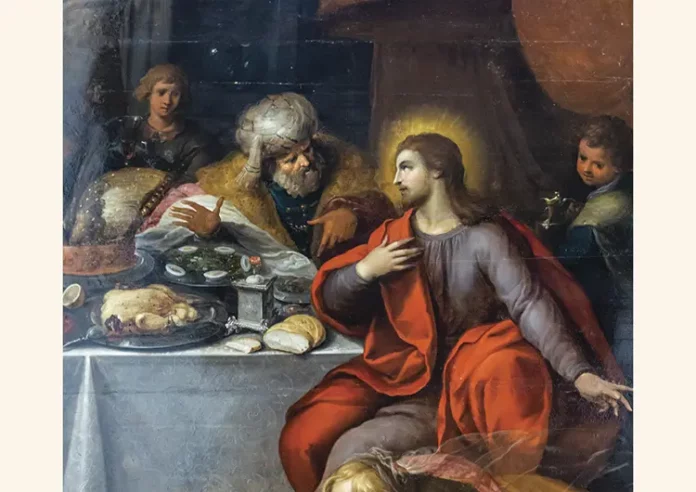August 31 – 22nd Sunday in Ordinary Time
The Liturgy for the 22nd Sunday in Ordinary Time highlights a marvellous aspect of the Soul of Our Lord Jesus Christ, which the Gospel Acclamation invites us to imitate: “learn from Me, for I am meek and humble of heart” (Mt 11:29).
This declaration, which today can even be heard with a certain carelessness and superficiality, sounded shocking in a historical era when the leaders of nations were tyrants (cf. Mk 10:42); the law of the strongest reigned, and pagan gods epitomized the manifestation of human vices.
Throughout Classical Antiquity, most people believed in some kind of divinity, and there was such a proliferation of images of idealized gods intended to meet the most diverse human expectations, that according to the Roman satirist Petronius, in Athens it was “easier to meet a god than a man.”1
St. Thomas2 teaches us that through the normal use of reason, man can come to the conclusion that there is a creator God, but he would never be able to know what this God is like if He did not reveal Himself.
In this sense, Jesus manifested Himself very gradually, opening up the understanding of those who listened to Him so that they could understand a God who was opposite in every way to the dominant mentality (cf. Mk 10:43-45), corroborating His teachings with numerous miracles so that, in the end – after the Holy Spirit was sent – they would truly know and love Him.
The Gospel shows us Jesus at a banquet “noticing how they were choosing the places of honour at the table” (Lk 14:7). With divine gentleness and marvellous charm, He initially teaches them the human advantages of practising humility: “When you are invited by someone to a wedding banquet […] go and take the lowest place so that when the host comes to you he may say, ‘My friend, move up to a higher position.’ Then you will enjoy the esteem of your companions at the table. For every one who exalts himself will be humbled, but the one who humbles himself will be exalted” (Lk 14:8-11).
Only then does He tell them about their reward in eternal life: “Rather, when you hold a banquet, invite the poor, the crippled, the lame, the blind; blessed indeed will you be because of their inability to repay you. For you will be repaid at the resurrection of the righteous” (Lk 14:13-14).
Two thousand years later, our Divine Model – today, perhaps more especially against hypocrisy than impiety – shows us that true humility does not consist in having a good reputation among men by means of an affected submissiveness or simplicity, but in a habitual attitude of gratitude and praise through which one returns to the Creator all that one has received from His hands.
He gave us an example of this by continually referring to the Father: “for all that I have heard from my Father I have made known to you” (Jn 15:15); “even though you do not believe Me, believe the works, that you may know and understand that the Father is in Me” (Jn 10:38).
I invite you, dear reader, to come and follow the spiritual path travelled by Msgr. João, founder of the Heralds of the Gospel: let us marvel at Our Lord Jesus Christ, well aware that admiration makes the one who admires similar to the one who is admired. ◊
Notes
1 PETRONIUS. Satyricon, n.17.
2 Cf. ST. THOMAS AQUINAS. Summa Theologiæ. I, q.2, a.3.


